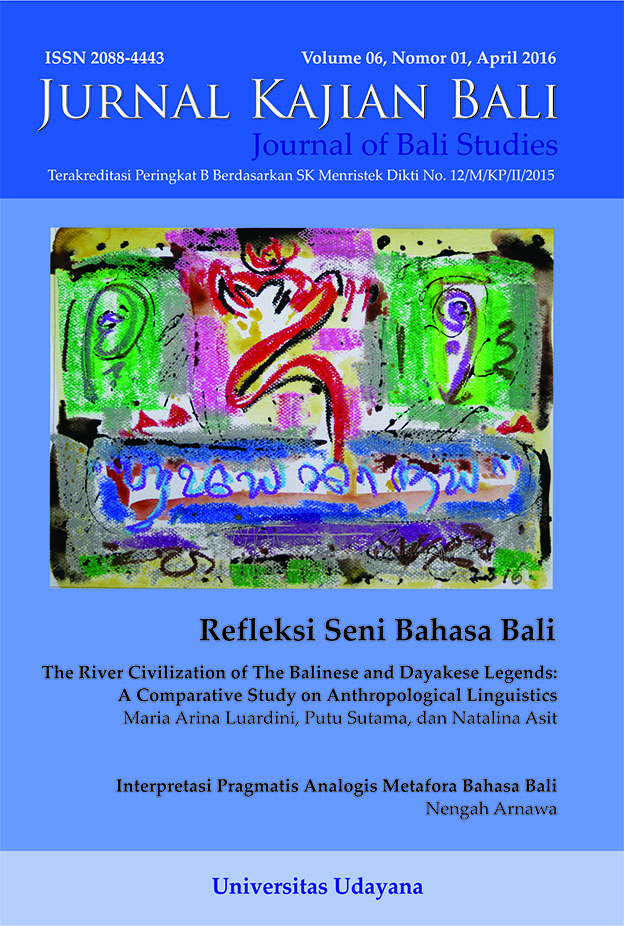Filosofi Pasupati Pratima Ratu Ngerurah dan Ratu Ayu di Pura Pasek Ngukuhin Tegeh Kori Tonja, Denpasar
Abstract
Abstract
The Hindu community in Bali have a tradition ceremony called pasupati pratima, sacralization of statue. Pasupati generally performed in the temple where pratima will be resided. This article examines the process and the philosophical meaning of pasupati pratima in Pura Pasek Ngukuhin, Banjar Tegeh Kori Denpasar. In this temple, the event has been a tradition but still gugon tuwon, meaning that without the efforts carried out by a tradition steeped in philosophical meaning. In the philosophy of pasupati ceremony is the process of uniting the power of Shiva (Trance Pasupati) on pratima characterized by melaspas ceremony, that is cleaning all the stains of Pratima. Ngatep, unifying symbol of soul and body in pratima is by tying a tridatu thread as the strength of Tri Murti. Chanting Mantram of Pasupati is a wish to Lord Shiva to reside on the Pratima. Chanting script of Dasa Bayu (ten forces of nature) Ing, Ang Kang, Sang, Mang, Pang, Lang, Wang, Yang, Ung means that ten natural forces entered the pratima. Pasupati also means the union of the power of God/ Spirit of the bhuwana agung with Pratima become one substance with God. When this unification happens, the status of pratima become deities. The entire process of Pasupati, philosophically, is the changes status of an object from the profane to the sacred that is based on Satyam Siwam Sundaram (truth, purity and beauty) in order to achieve the purpose of life jagadhita (prosperous).
Downloads
Keywords

This work is licensed under a Creative Commons Attribution 4.0 International License.



















